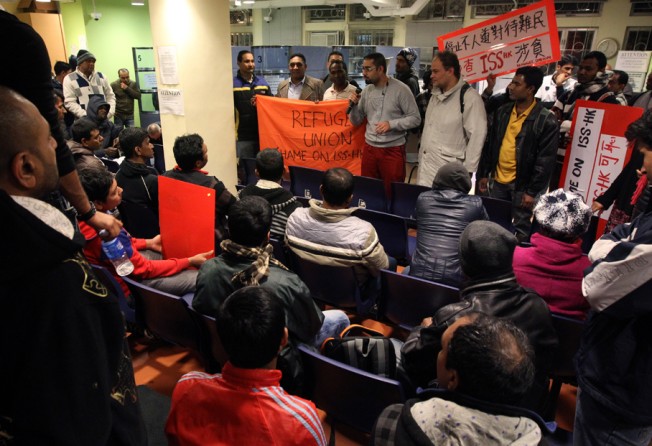All not lost for refugees seeking dignity through work in Hong Kong
Tony Read says more may seek permission despite disappointing ruling

The recent Court of Final Appeal judgment denying refugees and other claimants seeking protection a constitutional right to work beggars belief and common sense.
The case concerned four individuals who have been accepted by the UN High Commissioner for Refugees and the government as bona fide claimants.
All four have effectively been stranded in Hong Kong for a prolonged period - up to 12 years. They are not economic migrants and, at the beginning of the judicial review process, had not been given permission to work here.
However, during the fourth year of the process (when the case was at the Court of Final Appeal stage), three of the applicants were granted permission to work by the Director of Immigration. This discretion is exercised after an individual application, and a review of the personal circumstances of each case, but it does not constitute a right to work.
The granting of permission to work depends strongly on whether the applicant is, or is likely to be, suffering as a result of "inhuman or degrading treatment" from the denial to work.
It was extremely disappointing that the court judgment failed to support the right to work for the claimants contained in various provisions, including in the Hong Kong Bill of Rights and the Basic Law, but instead has upheld the current practice of official discretion that allows the Immigration Department to evade its responsibilities in this regard.
Hong Kong has persistently clung to its claim of being vulnerable to a massive influx of migrants if it were to grant successful protection claimants the right to work. Citing security concerns, it has fought vigorously to deny to those who seek shelter here any concessions or the ability to work.
Every step of progress towards some achievement of "fair play" has had to be won in court cases that were carefully constructed to expose the government's inadequacies and inequitable procedures.
This judgment is regrettable because it lacks any consideration of human rights, preferring instead to stick to the fine print of legal interpretation.
It gives legal backing to the government's policies instead of taking a broader view that recognises the misery these policies are inflicting on protection claimants.
Fortunately, in the cases of these three claimants, they are now able to work in Hong Kong (albeit subject to renewal of their permit every six months).
While it is not the right to work for sure, at least they can now take some responsibility for their lives and regain some dignity by being able to work. These three have, in a way, established a precedent for others in the same situation.
There are thought to be at least two dozen others who can potentially make a claim for permission to work.
While the granting of such permission is at the Director of Immigration's discretion, the grounds for a claim are subject to legal testing in the courts.
The judgment by Chief Justice Geoffrey Ma Tao-li in the Court of Final Appeal made it quite clear that the director's decisions in future cases will be subject to careful scrutiny.
We can expect that more and more successful claimants will be granted permission to work. This will seriously frustrate the Security Bureau's intention to portray Hong Kong as a place that does not provide asylum or allow claimants to work.
The top court's judgment may be a small victory for the government, but it will prove to be a massive loss for its asylum policy.
Tony Read is justice advocate for The Vine Church in Wan Chai